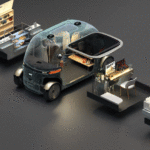Chennai-based rocket start-up Agnikul Cosmos has announced that it has successfully completed the flight acceptance test of its 3D printed engine.
The company stated in a tweet that the engine was fully manufactured at its Rocket Factory-1 and that it is a demonstration of the company’s ability to design, manufacture, and test a fresh rocket engine in-house. Their rocket factory first opened their doors last year, as we reported in this article.
The successful completion of the flight acceptance test sets the stage for the company’s planned suborbital launch of its rocket Agnibhan later this year.

The successful completion of the flight acceptance test is a major milestone for Agnikul Cosmos and brings the company one step closer to realizing its goal of providing low-cost and reliable access to space.
The use of 3D printing technology in the production of rocket engines offers significant advantages and has the potential to revolutionize the way in which rockets are manufactured.
Agnikul Cosmos’ success in 3D printing its engine is a demonstration of the company’s commitment to innovation and its goal of providing low-cost and reliable access to space.
The rocket engine was test fired late last year when the engine ran for 15 seconds at the Vertical Test Facility, at the Vikram Sarabhai Space Centre (VSSC), which is a facility owned and operated by the Indian Space Research Organisation (ISRO).
The test was made possible due to a new policy by the Indian government which allows space startups to utilize ISRO facilities for their projects.
The suborbital launch of its rocket Agnibhan later this year will be a significant event in the company’s history and will further establish its position as a leader in the Indian aerospace industry.
Come and let us know your thoughts on our Facebook, Twitter, and LinkedIn pages, and don’t forget to sign up for our weekly additive manufacturing newsletter to get all the latest stories delivered right to your inbox.









